
Circe, pronounce “KIR-kee, is one of our early images of feminine magic, a precursor to many Supernatural Underground heroines. In appreciation of our roots, I thought it would be fun to explore this ‘original witch’ who sparked the imagination of the ancient world.
In Greek mythology, Circe was an enchantress, a witch of great power. The daughter of Helios (the sun which represents consciousness) and Perse (an Oceanid who represents the unconscious), she is celebrated for her knowledge of magic and the use of herbs to heal and to transform.
Circe lived on the beautiful island of Aiaia where she waited for lost sailors to wash up on shore. Sometimes she helped them and sometimes she turned them into animals and served them for dinner! She was a bit unstable. She fell for Glaucus, a merman, but when he came asking for a love potion for his beloved Scylla, Circe lost it. In rage she poisoned the pool where Scylla bathed and turned her into a hideous monster. Jealousy can do that to a person. Circe was not immune.
Years later, Odysseus cast anchor in the bay of Aiaia. When his crew searched for food and water they found Circe instead. She transformed them into swine and kept them in pens. Of course Odysseus set out to find his crew and along the way he met Hermes, messenger of the gods, disguised as a young man. Hermes gave Odysseus a plant called ‘moly’ saying that it would protect him from the Circe’s magic. (This is where we get the saying ‘holy moly!’).
Circe welcomed Odysseys and cast her spell on him, but the moly did its trick. When Circe thought the magic was working, she struck Odysseus with her wand. Odysseus drew his sword and sprang at her and Circe surrendered. She released the twenty two pig-men and restored them to their original forms but they were taller and more handsome than before they had been enswined’. That night she invited Odysseus to her bed ‘ . . . so that in love and sleep we may learn to trust one another.’
And trust they did. With his freewill intact, Odysseus stayed on the island of Aiaia enjoying the sweet and sensual embraces of Circe. They were lovers for years, long enough for them to have at least two children, Agrios and Latinos. (In mythology whenever children are born of a union it means something creative is happening!) Eventually Circe agreed to help Odysseus return home to Ithica (and his wife Penelope). She tells him how to sail to Hades and bespeak the blind seer, Tiresias. In this act she is the psychopomp, the guide to the underworld, using her magic to connect Odysseus to the depths of his own unconscious.
Can you see any resemblance to Circe in our modern day magic wielding women? I know my own Kreshkali and Nell have some similarities and so does Rosette! How about other Supernatural authors/readers? I’d love to hear about your fav magical woman! Comments welcome.
resemblance to Circe in our modern day magic wielding women? I know my own Kreshkali and Nell have some similarities and so does Rosette! How about other Supernatural authors/readers? I’d love to hear about your fav magical woman! Comments welcome.
Kim Falconer is a Supernatural Underground author writing epic science fantasy novels set in the worlds of Earth and Gaela. Kim’s latest series is Quantum Encryption. You can find out more about her at kimfalconer.com or her blog The 11th House. She posts here on the 16th of every month.

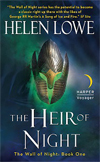
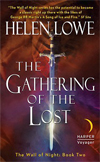
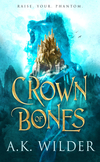
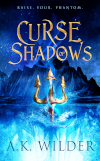
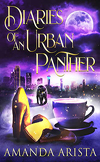
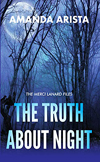

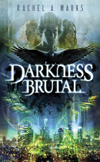
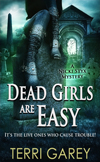
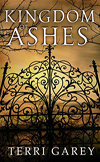
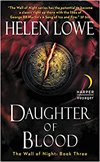
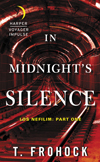
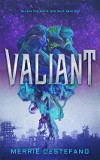
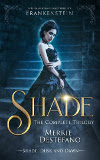

6 comments:
Fabulous post, Kim. I have been reflecting about favorite witch characters in FSF and thinking how few there really are: there's the Anne Bishop witches of course, who manage to reflect both aspects of Circe's nature, and Jessica in Dune is a "Bene Gesserit witch." And of course Morgana (Le Fay) in Marion Bradley's "The Mists of Avalon" is a druidic priestess with many overlaps to Circe. And Raederle in Patricia McKillip's "The Heir of Sea and Fire" is an earth master, ie the inheritor of considerable magic power. And then there's your own Quantum Witch ... But I think the tendency could perhaps still be to portray witches as more on the side of evil, as per Lewis's witches in the Narnia series. Clearly I need to reflect more on this one ...
(I just remembered Pullman's Finnish witches that I loved as well!)
Helen, thank you for that broad review of literary witches. I agree we have an almost cliche image of them centering around Macbeth's meeting of the three 'weird sisters' or three witches. To me they call up images of the Three Fates whom Hesiod (predating Homer) called primordial goddesses. They spun, measured and cut the threads of ones life. Basically they were Nature, setting limits for mortality.
Though 'witches' can be male or female, their origins are feminine. I wanted to show a deeper and richer side to the matriarchal line of power and magic in my books and still keep the context of what we already 'know', to shed a different light.
I think a fabulous book to turn the negative connotations of 'witch/magic/seer' upside-down is Wicked by Gregory Maguire. Suddenly the Yellow Brick Road takes on a whole new shine!
Thanks for dropping in! I know you've only ten days to go before the launch of The Gathering of the Lost! Can't wait!!!!
I think that in Circe you have found an early example of a woman who has independent agency in a story. Rather than just being a victim or a plot device.
So I think the comparison with more modern heroines is aptly made
Good point, Andrew. Thank you. And isn't it interesting that for a woman to be independent she had to be 'supernatural' and dangerous. Evil? We see regular Joe dudes in ancient times going on adventure, the hero's journey, but for the female to individuate, she has to engender powers, wield magic and be 'other' . . .
Our modern heroines have elements of this but hopefully they represent a shift towards greater integration (connection with the collective). Thanks for dropping by!
In a synchronistic happening, this morning, trying to wake up, still drifting on the thin line between sleep and awakening, I was thinking that my name is Circe....the enchantress. Then I got out of bed, open the pc and I star reading your post about Circe...and now I am specheless...Thank you:)
OMG That just gave me shivers! Love such instances of synchronicity.
to tell us! As Jung would say, there is a message in there . . .
Post a Comment